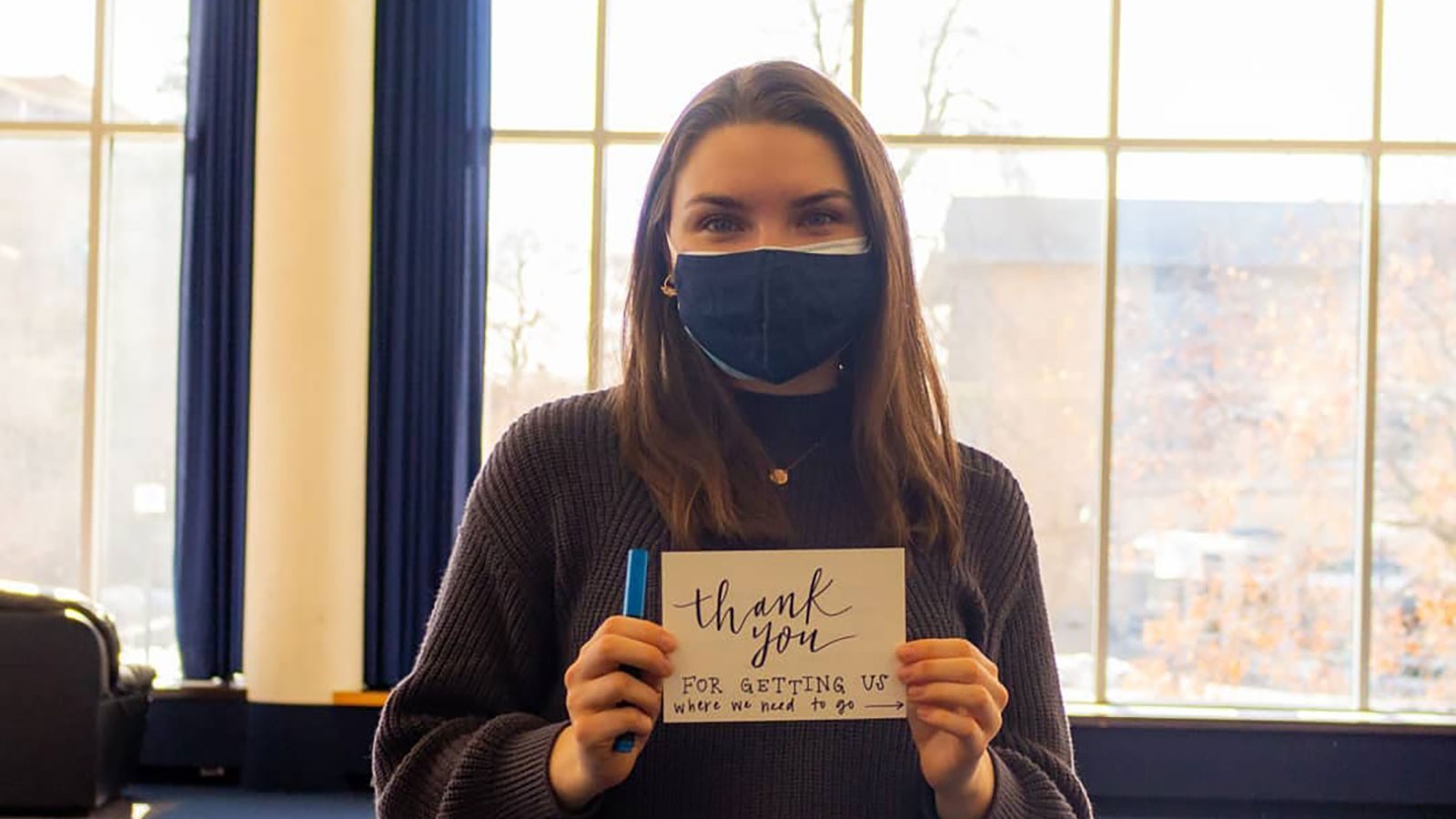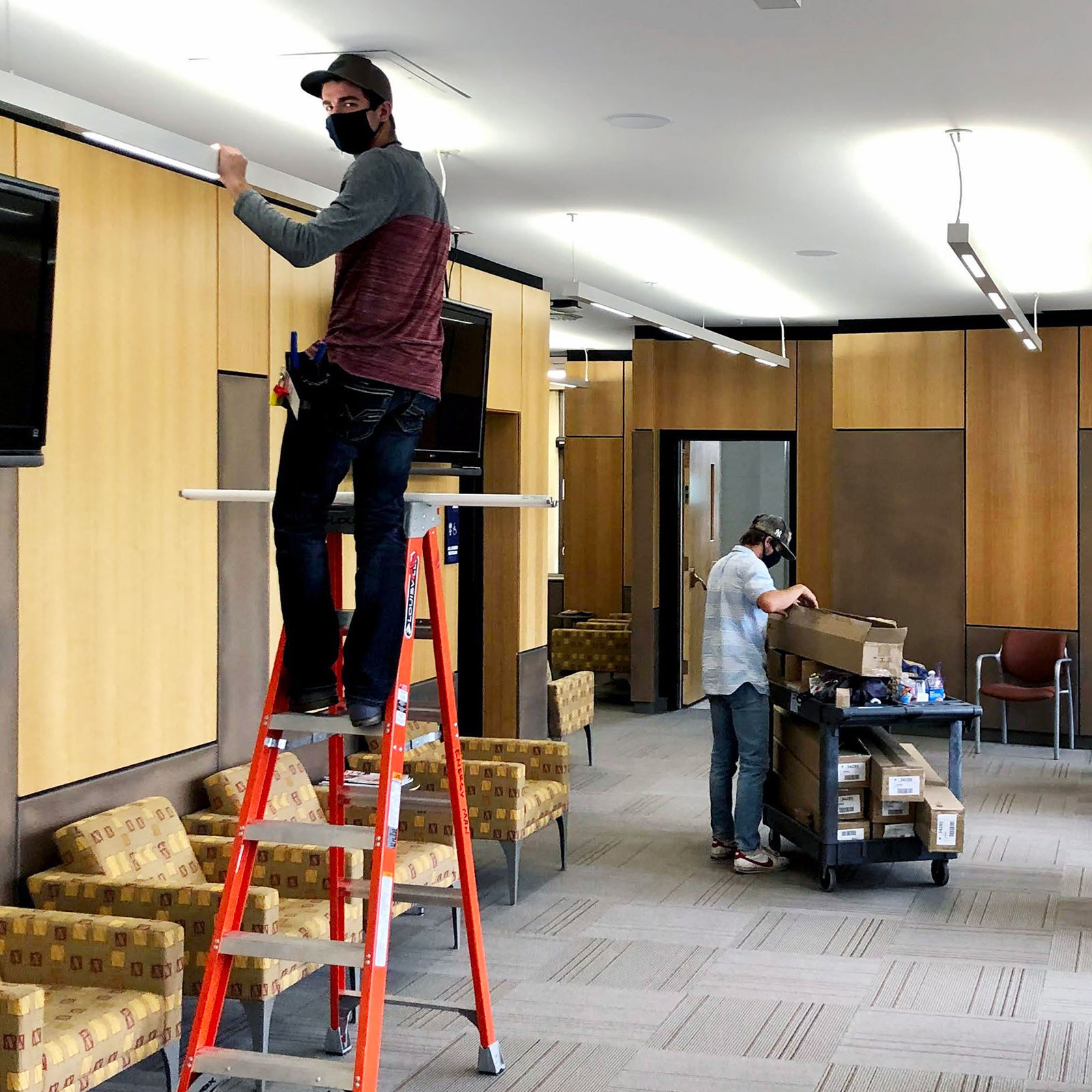USU Drives Down Greenhouse Gas Emissions in 2020
Innovative, practical solutions that support a thriving community are the basis for Utah State University’s sustainability efforts, which saw an uptick in the 2020 fiscal year.
On March 9, 2020, President Noelle E. Cockett announced Utah State University would commit resources toward energy-saving technology, a renewable energy portfolio, a fee on university-funded air trave and sustainability education for USU students. Almost a year later, USU is announcing a 7.7% reduction in greenhouse gas emissions during the 2020 fiscal year and progress on related initiatives.
Efficiency measures have been driving the energy and emissions reductions.
“We have a goal of converting lighting across the entire Logan and Statewide Campuses by the end of 2021,” said Zac Cook, USU’s energy manager. “As this project is completed we anticipate a savings of nearly 6 million kWh and a carbon emission reduction of 3,500 MTCO2.”
University crews have worked throughout the year to replace approximately 95,000 bulbs on campus with efficient LEDs, according to Cook. When the transition to LEDs is complete, the university will reduce energy used by lighting by two-thirds and save an estimated $200,000 to $350,000 per year. Lab ventilation upgrades and analytic software are contributing to savings in heating and cooling, as well.
Soon, USU will see additional benefits from adding renewable resources to its portfolio. A 158-kilowatt solar installation is now operational above the new Gateway Parking Terrace on the Logan campus.
Solar panels will also power USU’s first net zero-energy building, under construction on the USU Moab campus, and a more extensive integration of renewables is in the planning stages for many statewide campuses.
Efforts are developing for transportation-related emissions and education, too. Air and ground travel have been down this year. Additionally, an internal fee on air travel fee is in its first year. Funds generated by the fee will support projects that contribute to the university’s carbon reduction.
Finally, sustainability continues to be integrated into the curriculum. Hundreds of students participated in a pilot sustainability assessment in fall 2020, and according to the 2020 graduating student survey, 84% of students reported that they have an understanding of social, economic and environmental sustainability.
“It’s been a chaotic but exciting year for the university’s sustainability efforts,” said Alexi Lamm, USU’s sustainability coordinator. “The work our utilities and HVAC folks have done has been encouraging, especially in a year that changed everyone’s expectations. The goal of these initiatives is to support a healthy community, and this is just a start.”
More information on USU’s sustainability initiatives is available online.
CONTACT
Zac Cook
Energy Manager
Facilities
435.797.7048
zac.cook@usu.edu
Alexi Lamm
Sustainability Coordinator
Utah State University
(435) 797-9299
alexi.lamm@usu.edu
TOPICS
Environment 270stories Climate 154stories Sustainability 146stories Energy 102stories Engagement 95storiesComments and questions regarding this article may be directed to the contact person listed on this page.













